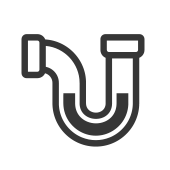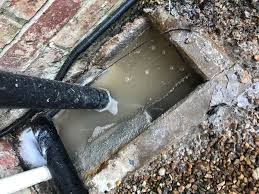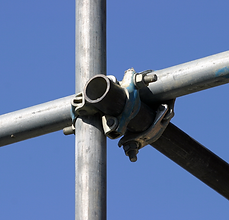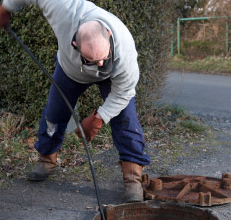
Do you have slow draining sinks, overflowing toilets or bad odors coming from your bathroom or kitchen? Chances are that you have blocked drains in your home. Blockages can range from small to large and require specific solutions to be fixed. In this comprehensive guide, we discuss what causes blocked drains, how to identify them and the best ways to unblock them. So if you need help, click here .
What Causes Blocked Drains?
The most common cause of blocked drains is the buildup of grease, debris, and other materials that should not be flushed down the drain. Hair, toys, food scraps, and other objects can also become stuck and cause blockages. Tree roots also penetrate pipes over time, leading to blockages. Finally, damage to sewer lines due to weather events or ground shifting can cause backup and block drainage.
Signs of Blocked Drains
When it comes to identifying blocked drains, the most obvious sign is that water drains much slower than usual. If you hear gurgling sounds when running water, this could indicate a blockage. Also, if there are bad odours coming from a sink or toilet, this often indicates a blockage in the pipe. Lastly, backing up of water is another indication that your drains may be blocked.

Unblocking Small Drains
Small blocked drains are usually caused by domestic items such as wet wipes, hair and other debris. To unblock these types of drains, you should first check for any visible debris and remove it. You can then use either a plumbing snake (flexible steel cable) or a plunger to attempt to unclog the drain. Be sure to wear gloves and safety goggles while doing so. If the blockage persists, try using an over-the-counter chemical solution to break down the clog.
Unblocking Large Drains
Larger blockages tend to be more difficult to tackle and may require professional assistance. Typically, a plumbing expert will use a high-pressure jetter to break down the blockage. This device uses high pressured jets of water to clear out debris from your pipes. It is important to note that cheap solutions such as caustic soda, bleach or acid must never be used on larger drains as they can corrode your pipes and do more harm than good.
Preventing Blocked Drains
Prevention is always the best form of treatment and there are a few simple steps you can take to avoid blocked drains entirely. Firstly, never flush anything other than toilet paper down the toilet and be mindful of items that could easily become lodged in the drain. Outside drains should be checked regularly for leaves and debris, which can accumulate over time. Furthermore, invest in a drain maintenance service every 6 months to ensure that your drains run smoothly all year round.
Call in the Professionals
If you think you have a blocked drain or notice any of the warning signs mentioned earlier, call in the professionals. Professional plumbers have the necessary tools and experience to quickly diagnose and solve any issue, saving you time and money. The team at XYZ Plumbers is experienced in dealing with blocked drains and offer a fast and efficient service at great prices. So if you’re in need of some help, give us a call today!
Having blocked drains in your home can be a nuisance but with the right information and expertise, it doesn’t have to be a long and complicated process. Remember that prevention is key and regular maintenance is the best way to ensure your drains remain free from obstruction in the future. So don’t wait until it’s too late – click here for help with your blocked drains.



